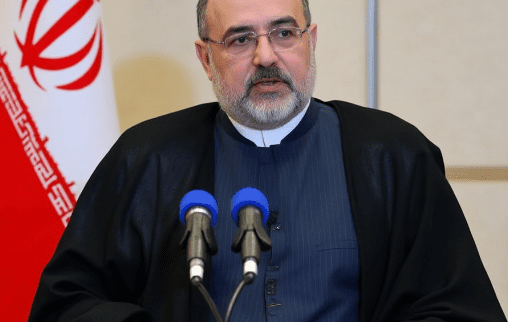On October 13, 2024, Iran publicly criticized the European Union’s proposed sanctions, dismissing allegations that it has been supplying ballistic missiles to Russia. The planned sanctions come in response to ongoing concerns about Iran’s role in aiding Russia’s military efforts, particularly in its conflict with Ukraine. Iran, however, has vehemently denied these accusations, calling the sanctions “unfounded” and warning of potential consequences for its diplomatic relations with Europe.
The Allegations
The EU’s planned sanctions are part of broader international efforts to curb the flow of military support to Russia, which continues its invasion of Ukraine. Western intelligence agencies have pointed to evidence that suggests Iran has supplied Russia with military equipment, including ballistic missiles and drones. These weapons have allegedly been used in Russian attacks against Ukrainian forces and infrastructure, further complicating the geopolitical situation.
Iran has consistently denied these allegations, maintaining that it has not supplied any military assistance to Russia. The Iranian government has called the EU’s actions unjust and based on false information, asserting that it remains neutral in the ongoing conflict between Russia and Ukraine.
Potential Impact of Sanctions
If the EU proceeds with the sanctions, they are expected to target key sectors of Iran’s economy, including its defense industry. This could have significant consequences for Iran, which is already grappling with economic challenges due to longstanding sanctions imposed by the United States. The new sanctions would likely deepen the country’s economic isolation and strain its relations with European nations.
Iran has warned that the sanctions could harm diplomatic ties and impede any future cooperation on important regional and global issues. The government has also hinted at potential retaliatory measures, though it has not specified what actions it might take.
International Reactions and Context
The growing tension between Iran and the EU comes at a time when Iran is already facing widespread international scrutiny over its domestic policies, human rights violations, and nuclear program. The proposed sanctions further complicate Iran’s standing in the international community, particularly as it seeks to navigate its relationships with both Russia and the West.
As the conflict in Ukraine continues to evolve, the international community remains focused on limiting the flow of military aid to Russia. The EU’s proposed sanctions against Iran underscore the bloc’s determination to address any potential sources of support for Russia’s war efforts.
The situation highlights the delicate balance of diplomacy, as Iran attempts to maintain its alliances while avoiding further isolation on the global stage.





